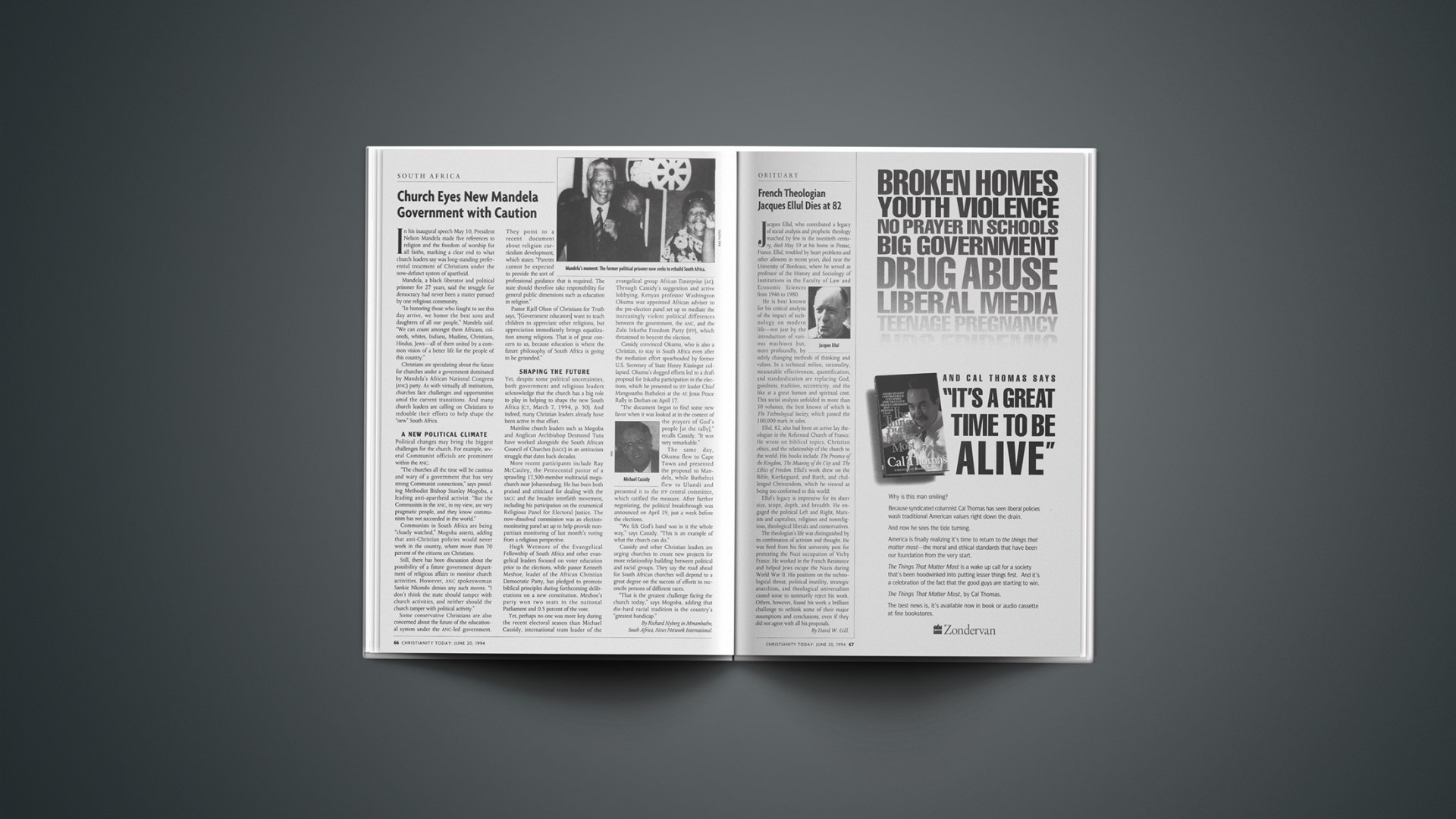Jacques Ellul, who contributed a legacy of social analysis and prophetic theology matched by few in the twentieth century, died May 19 at his home in Pessac, France. Ellul, troubled by heart problems and other ailments in recent years, died near the University of Bordeaux, where he served as professor of the History and Sociology of Institutions in the Faculty of Law and Economic Sciences from 1946 to 1980.
He is best known for his critical analysis of the impact of technology on modern life—not just by the introduction of various machines but, more profoundly, by subtly changing methods of thinking and values. In a technical milieu, rationality, measurable effectiveness, quantification, and standardization are replacing God, goodness, tradition, eccentricity, and the like at a great human and spiritual cost. This social analysis unfolded in more than 30 volumes, the best known of which is The Technological Society, which passed the 100,000 mark in sales.
Ellul, 82, also had been an active lay theologian in the Reformed Church of France. He wrote on biblical topics, Christian ethics, and the relationship of the church to the world. His books include The Presence of the Kingdom, The Meaning of the City and The Ethics of Freedom. Ellul’s work drew on the Bible, Kierkegaard, and Barth, and challenged Christendom, which he viewed as being too conformed to this world.
Ellul’s legacy is impressive for its sheer size, scope, depth, and breadth. He engaged the political Left and Right, Marxists and capitalists, religious and nonreligious, theological liberals and conservatives.
The theologian’s life was distinguished by its combination of activism and thought. He was fired from his first university post for protesting the Nazi occupation of Vichy France. He worked in the French Resistance and helped Jews escape the Nazis during World War II. His positions on the technological threat, political inutility, strategic anarchism, and theological universalism caused some to summarily reject his work. Others, however, found his work a brilliant challenge to rethink some of their major assumptions and conclusions, even if they did not agree with all his proposals.
By David W. Gill.










